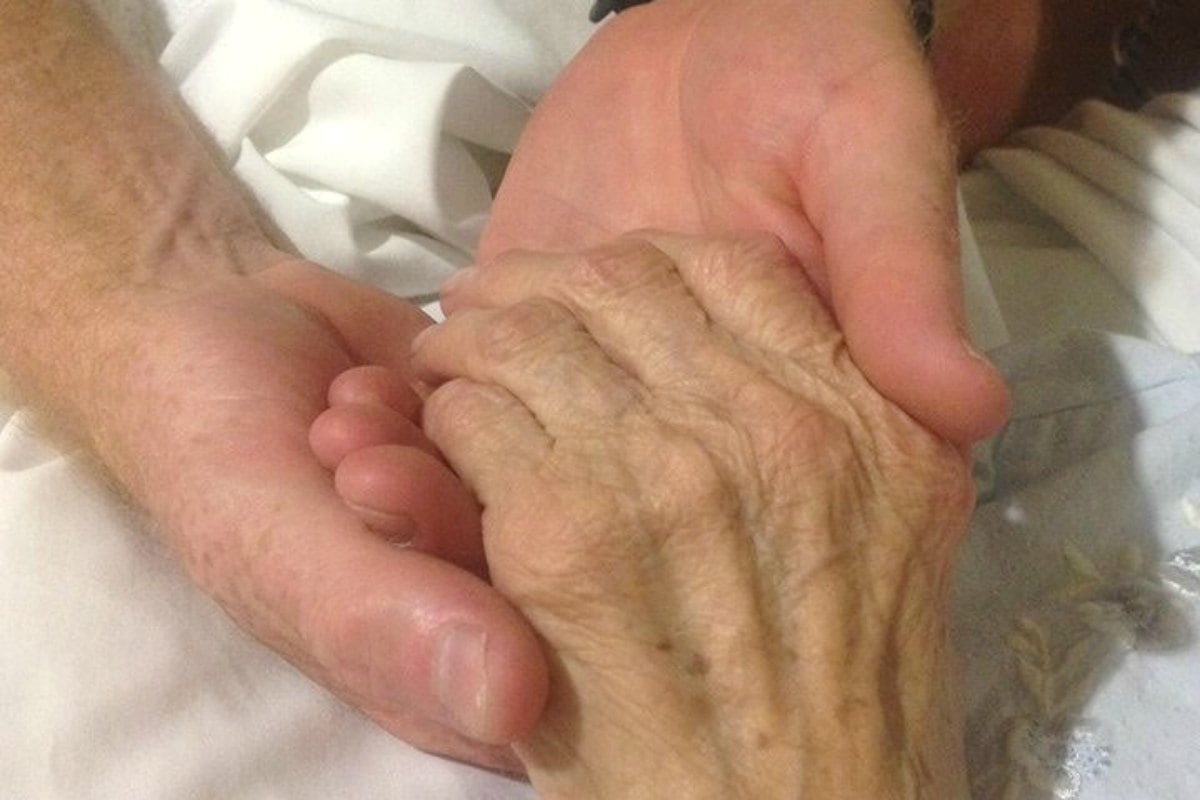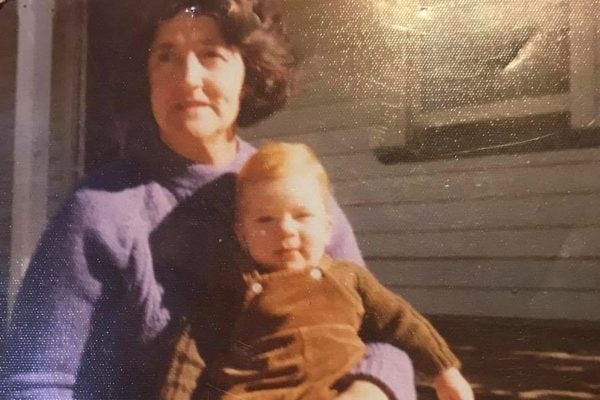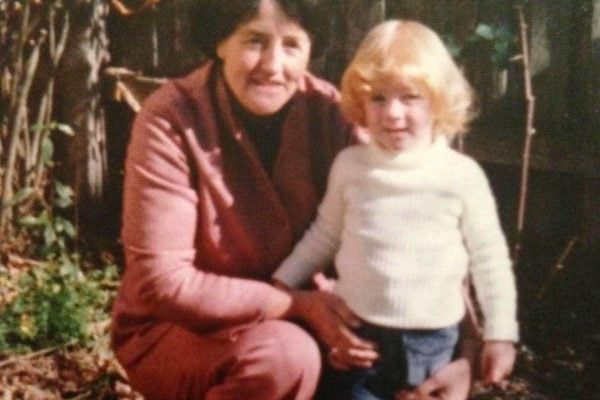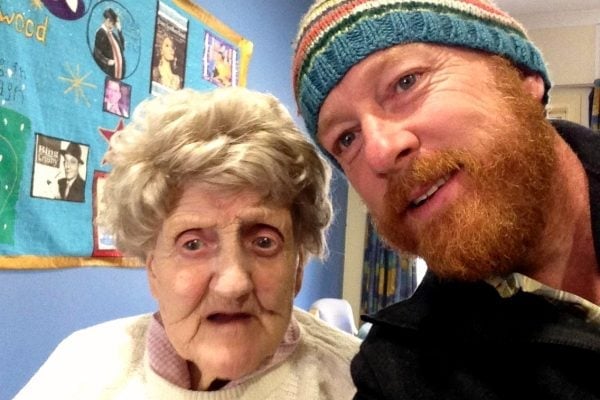
As Jeremy Forbes watched his grandmother, Olga, take her final breath, he grabbed hold of her hand and said, “come on Olga, it’s time to go”.
After three days of teetering on the fine ridge between life and death, Olga passed away.
Jeremy and Olga’s relationship was special and it was strong.
“There was a connection between us. I can’t find a word to describe it. It was indescribable,” he told Mamamia.
Much of his childhood was spent with his nan and pa as his mother who was only 18 when she had Jeremy.
“We would go to bingo, to bowls, the things they enjoyed doing but my nan would always do the things I loved too like kick the footy with me or play cricket. We spent so much time together doing the little things.
“There weren’t big holidays or expensive experiences. It was things like me helping her use the kitchen vice to chop up vegetables for pasties and the time, love and affection she always showed me that made our relationship so strong.”




Top Comments
I am somewhat sceptical about the value of death doulas. My experience has been whilst most people do not want to die alone, it is family or a close friend who brings them comfort when dying. I have read that doulas think they should be advocating for the patient and family, but how does a two day course prepare them for this? Palliative Care staff are generally highly trained (and includes doctors, nurses, social workers, bereavement counsellors) and in most dedicated Palliative Care wards there is a genuine rapport and relationship between patients, family and the staff. If Jeremy genuinely wants to help people he should go get his nursing degree and then focus on Palliative Care.